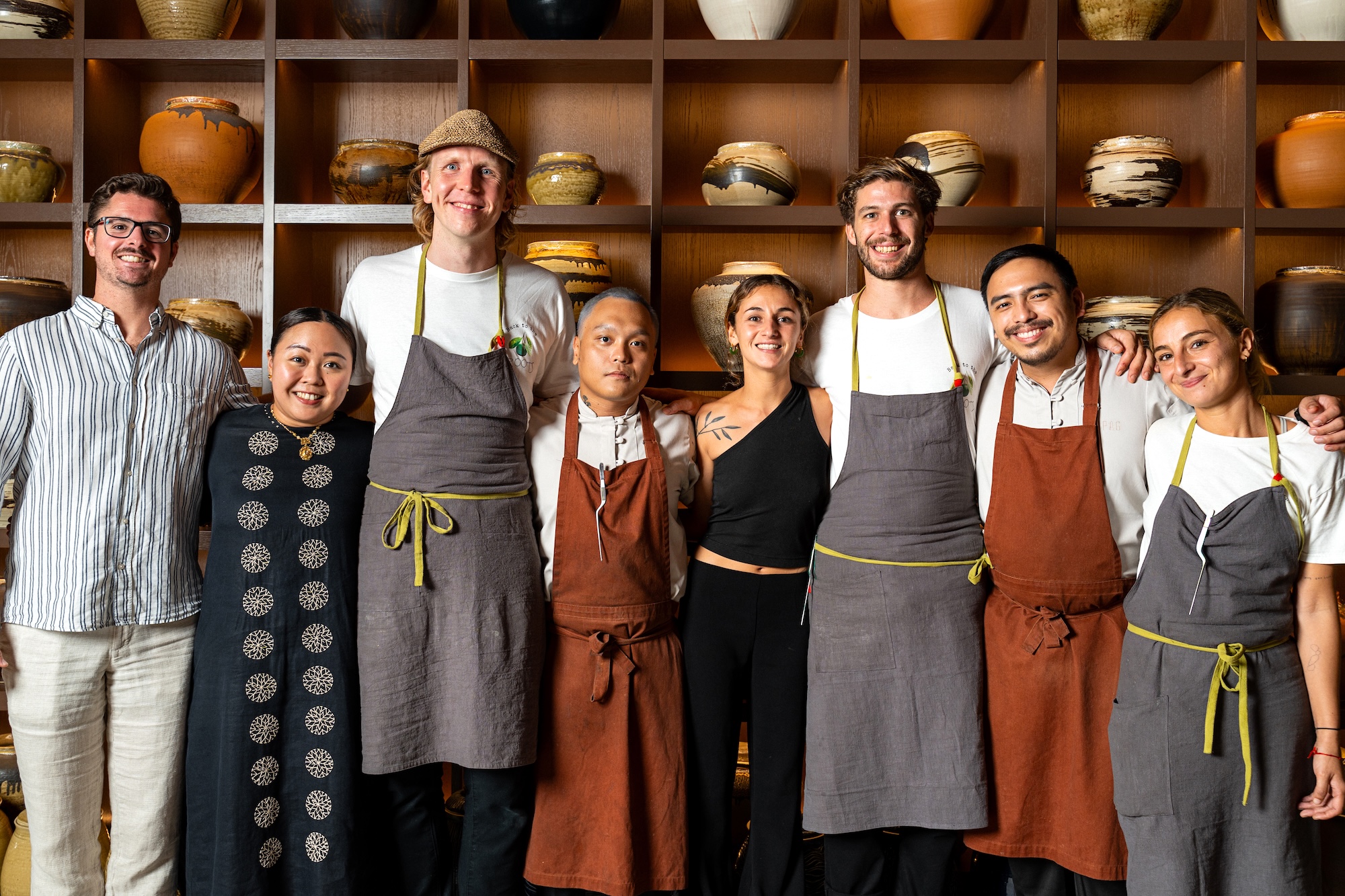When driving through the La Union municipality of Bauang, one will immediately notice a number of locals holding up signs that say, “Grape picking here.” It may come as a surprise to guests visiting the place for the first time, but for those who have been here as early as the ’70s, grapes aren’t truly foreign to the country.
Bauang families have actually been growing grapes for over 40 years now. It all began when Avelino Lomboy, dubbed the “Philippine Grape King,” planted 20 cuttings he got from Cebu. It started simply as a hobby, but when a lucrative opportunity presented itself, he shut down his piggery to focus on grapes. For a certain time, as much as 90 percent of the country’s supply of grapes came from his farm. Eventually, he shared extra cuttings with various clans across the town. Among the families he taught them to properly foster vineyards were the Gapuzes.
Danny Gapuz, the owner and farming technician of Gapuz Grapes Farm, was told by his father that his family would try their hand at growing grapes back in the ’80s. He has been looking after the family vineyard for over 30 years; his property now spanning around 2.5 hectares with an estimated 75 percent dedicated to granary and the rest for other produce like dragonfruit. Danny also supplies cuttings not just to Bauang natives but also to various provinces nationwide.
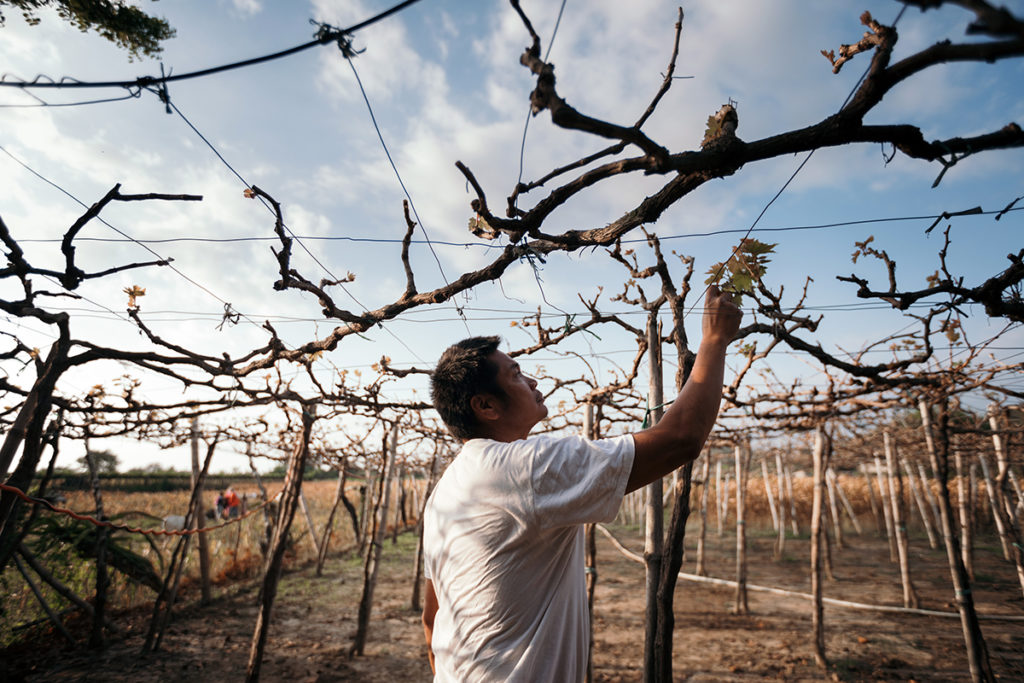
Aside from the scorching heat of the area (grapes actually thrive in hot weather), the secret behind maintaining vineyards actually lies in the timing, says Joe Gapuz, Danny’s youngest brother, who also handles the social media marketing of the business. The reason it’s much easier to grow grapes outside tropical countries is that there are fewer storms in places like the US or Italy. Danny prunes the overhead-type vineyards every three months and uses only organic fertilizers made out of seaweed. The family does not plant grapes during the rainy season due to the abundance of typhoons. Joe adds that it’s best to plant in December or January. In turn, harvesting periods come thrice every year—April to the end of May (with May being the best time to harvest), July to August, and December to January. Joe, an OFW who lives in the US, makes sure to visit his hometown during harvest seasons to greet tourists who come to Gapuz Grape Farms and market his own little project for the family business.
When asked if he considers his clan the pioneers in the Bauang grape industry, Joe says. “It’s a heavy mantle to bear. But I would say that we put grapes tourism on the map for Bauang.”
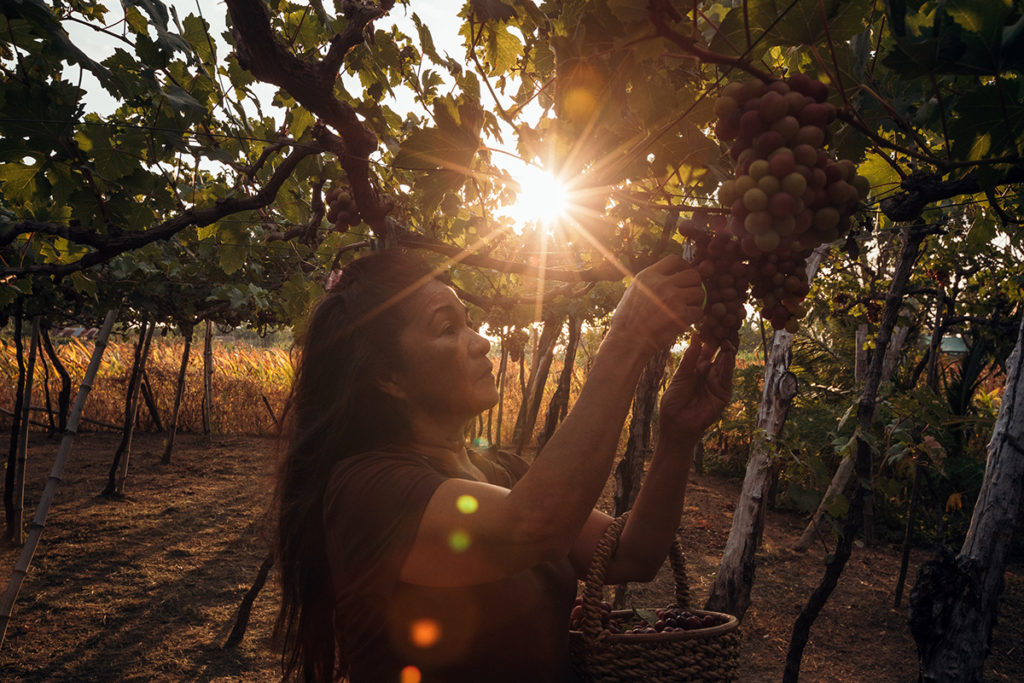
It was Joe who consistently tried to spread the word through social media, beginning in the Friendster era when he attempted to invite online contacts to pay the family farm a visit. Their official Facebook page, which started out with only 30 likes, grew to a whopping 34,000 followers. Online, Joe tagged backpackers and tapped communities interested in living the provincial life: turning phones off, swinging on hammocks under the shade of overhead grapevines. Joe calls it “The Porch Life,” citing the hakuna matata philosophy as the inspiration behind it.
“I want people to feel safe and welcome, like they’re family or a big barkada,” he says. “We aren’t strict here; chill lang. When they visit the farm, it’s completely free of charge, save for the grapes they wish to pick. The idea behind this comes from my family growing up in a quiet life in the province.”
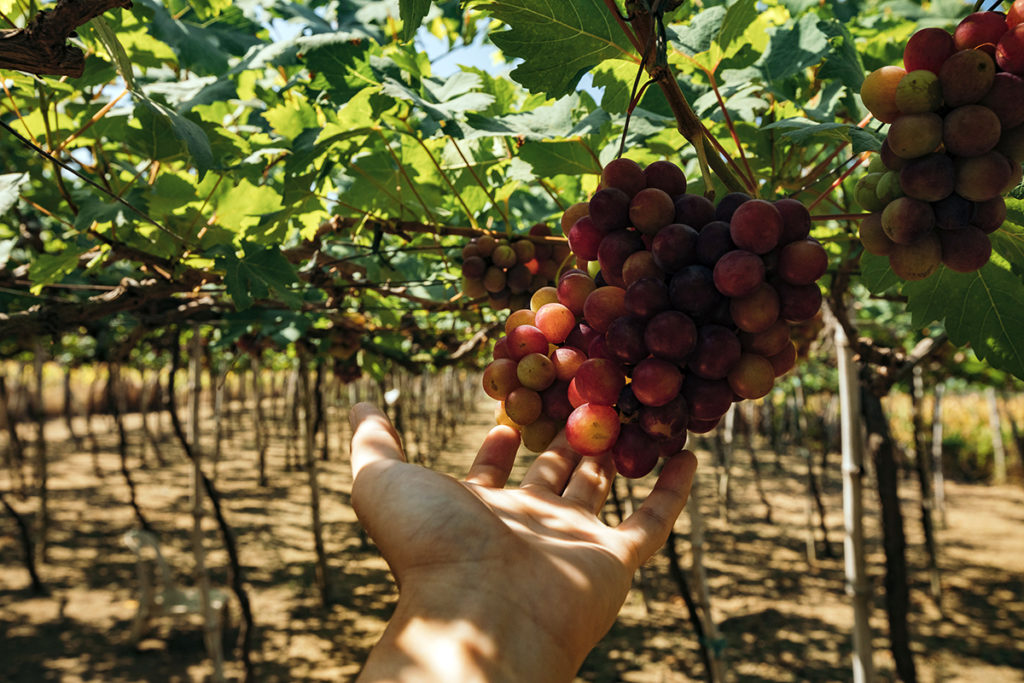
The farm itself is run by the family, with Danny overseeing all operations, Joe managing marketing and social media, and a handful of their cousins helping out with logistics, online promotions, and tourist visits. Other than grape picking, which goes for P400 per kilo, they also offer boodle fights for P1,500 for 10 people. This vineyard experience was Joe’s solution to the dropping value of grapes.
The parking area is usually filled with cars on weekends, and the vineyards are brimming with tourists eagerly cutting down grape bundles from the vines. Sashaying around the farm’s premises is a giant Brahma chicken called Gorgeous George, a gift from a German visitor. When not tending to the vineyards, Danny can often be found on his hammock, taking in the fresh Bauang atmosphere. Farm personnel are all welcoming and more than happy to teach visitors how to harvest. Usually, after scheduled boodle fights, Joe takes guests to the nearby beach to either surf or have a drink.
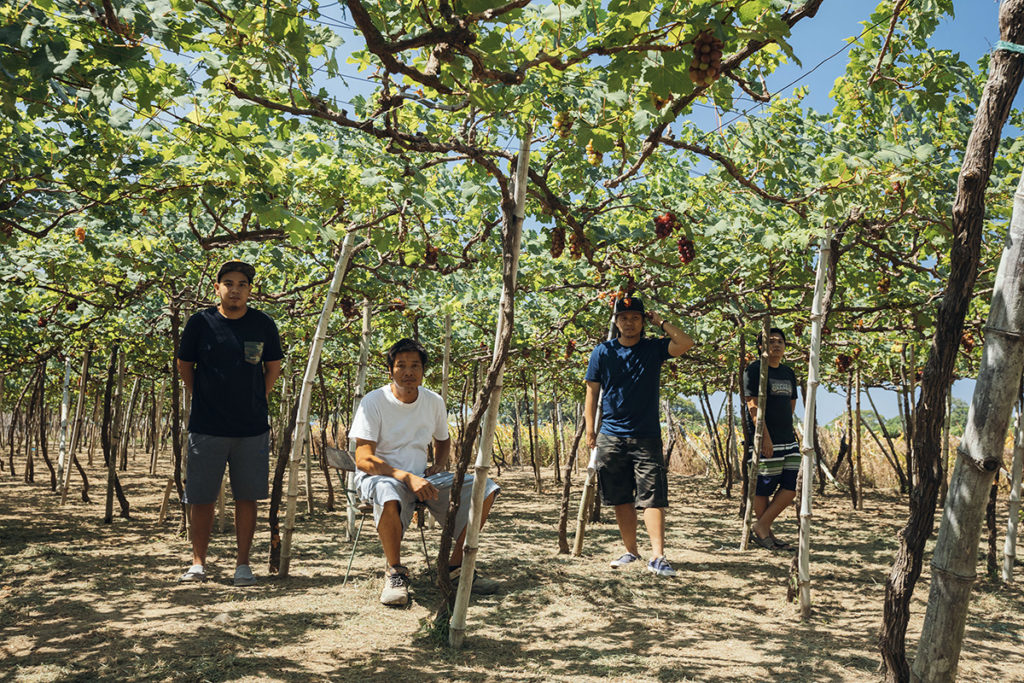
The country has been growing grapes for decades now, and yet not many people are aware of it. Perhaps it’s because the grapes from La Union barely reach the city, with most of the stock being hoarded up north, in Baguio, or in neighboring towns.
To this, the Gapuzes advise to just pick the grape yourself.
Originally published in F&B Report Vol. 14 No. 3















